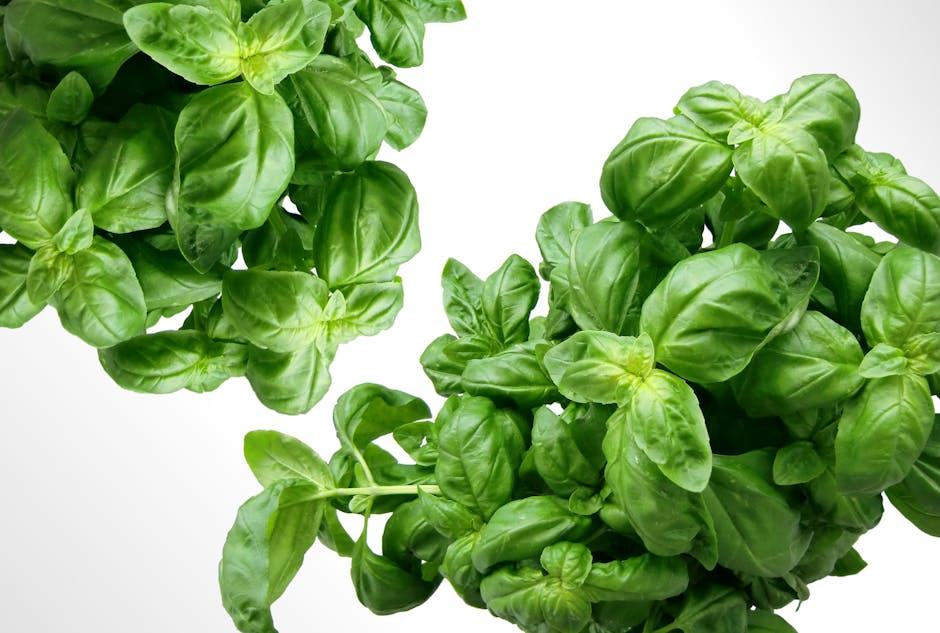The Complete Vegan Roadmap: Navigating the Journey to a Plant-Based Diet With Confidence and Ease
Start on a transformative journey toward a plant-based lifestyle with ‘The Complete Vegan Roadmap,’ guiding you with unwavering confidence. Discover myriad benefits: improved health, environmental impact, and nutrient richness. Elevate your meals with protein-packed legumes, iron-rich leafy greens, and omega-3 sources. Ace your grocery shopping with cost-effective options and seasonal produce. Master meal planning, cooking techniques, and dining out as a vegan superstar. Build a balanced plate with diverse plant-based proteins, calcium, and omega-3 sources. Portion control like a pro with mindful eating habits. Explore vibrant meal plans for variety and health. Your journey to plant-based glory awaits.
Key Takeaways
- Understand essential nutrients for a balanced vegan diet.
- Plan meals with variety and nutritional value.
- Learn cooking techniques for flavourful vegan dishes.
- Explore vegan-friendly dining options and strategies.
- Focus on portion control and balanced plates for health.
Benefits of a Plant-Based Diet

By adopting a plant-based diet, you can experience numerous health benefits that can positively impact your overall well-being. Not only does this dietary choice benefit your health, but it also has a significant positive effect on the environment. The environmental impact of a plant-based diet is profound. Livestock farming for meat and dairy production is a leading cause of deforestation, water pollution, and greenhouse gas emissions. By choosing plant-based options, you’re reducing your carbon footprint and contributing to a more sustainable planet.
Health benefits abound when you opt for a plant-based diet. Research shows that individuals who consume plant-based diets tend to have lower risks of heart disease, high blood pressure, type 2 diabetes, and certain types of cancer. Plant-based foods are rich in essential vitamins, minerals, and antioxidants that support overall health and well-being. Additionally, a plant-based diet is typically lower in saturated fats and cholesterol, which can lead to improved heart health and weight management.
Essential Nutrients for Vegans

When following a plant-based diet, ensuring you obtain all essential nutrients becomes important for maintaining excellent health and well-being.
Let’s talk about protein sources first. Contrary to popular belief, plants offer a plethora of protein options. Legumes like beans, lentils, and chickpeas are fantastic sources. Nuts and seeds, such as almonds, chia seeds, and hemp seeds, are also rich in protein. Tofu, tempeh, and edamame are versatile soya products that can boost your protein intake.
Next up, let’s explore iron absorption. Iron is essential for carrying oxygen in your blood and plays an important role in overall health. Plant-based sources of iron include leafy greens like spinach, kale, and swiss chard. Legumes, quinoa, and fortified cereals are also excellent sources. To enhance iron absorption, pair these foods with vitamin C-rich options like citrus fruits, bell peppers, or strawberries. Additionally, avoiding consuming calcium-rich foods with iron-rich foods can improve absorption.
Vegan Grocery Shopping Tips

To optimise your vegan grocery shopping experience, plan your meals ahead of time to make certain you have a well-rounded shopping list. Here are three essential tips to enhance your plant-based shopping journey:
-
Budget-Friendly Alternatives: Explore cost-effective protein sources like lentils, beans, and tofu. These versatile ingredients can be used in various dishes, providing you with essential nutrients without breaking the bank. Look for store-brand options or buy in bulk to save even more.
-
Seasonal Produce Recommendations: Incorporating seasonal fruits and vegetables not only guarantees freshness but also supports local farmers. In the summer, indulge in juicy tomatoes, sweet corn, and invigorating cucumbers. During the fall, embrace the abundance of squash, apples, and hearty greens. Adjusting your meals based on seasonal produce adds variety and nutritional value to your diet.
-
Meal Prep Staples: Stock up on pantry staples like quinoa, oats, nuts, and seeds. These items serve as the foundation for many vegan dishes and can be stored for an extended period. By having these essentials on hand, you can easily whip up nutritious meals without last-minute grocery runs.
Meal Planning for Success

For successful vegan meal planning, start by creating a weekly menu that includes a variety of nutritious plant-based dishes. Meal planning is your key to success on this journey. Begin by selecting a range of fruits, vegetables, grains, legumes, and plant-based proteins for your meals. Consider what you enjoy eating and what nutrients your body needs. This is your chance to get creative and experiment with new flavours and ingredients.
Meal prep is your best friend when it comes to staying on track with your plant-based diet. Set aside some time each week to chop vegetables, cook grains, and prepare snacks. Having these ready-to-eat items in your fridge will make it easier to throw together a quick and healthy meal when you’re short on time.
When it comes to recipe inspiration, the options are endless. Look for vegan cookbooks, websites, and social media accounts for ideas. Don’t be afraid to adapt recipes to suit your taste preferences and dietary needs. Experiment with different seasonings, cooking methods, and ingredient combinations to keep things exciting in the kitchen.
Vegan Cooking Techniques

Exploring various cooking techniques will enhance your culinary skills and help you create delicious vegan dishes effortlessly. Let’s immerse ourselves in the world of vegan cooking with confidence and excitement. Here are some essential tips to elevate your plant-based culinary creations:
-
Flavour Enhancement: Experiment with a variety of herbs, spices, and seasonings to add depth and complexity to your dishes. Consider using ingredients like nutritional yeast for a cheesy flavour, tamari or soya sauce for umami richness, and smoked paprika for a touch of smokiness. Don’t be afraid to get creative and combine different flavours to develop unique taste profiles.
-
Ingredient Substitutions: Embrace the art of ingredient substitutions to adapt traditional recipes into vegan-friendly delights. Replace dairy milk with plant-based alternatives like almond, soya, or oat milk. Swap eggs with ingredients like flaxseeds, chia seeds, or applesauce for binding and moisture. Explore the world of plant-based proteins such as tofu, tempeh, or seitan to replace meat in your favourite recipes.
-
Cooking Methods: Master various cooking techniques like sautéing, roasting, steaming, and baking to bring out the best in your ingredients. Each method offers a different texture and flavour profile, allowing you to create diverse and satisfying vegan meals. Experiment with different techniques to discover your favourite ways of cooking plant-based dishes.
Eating Out as a Vegan

When eating out as a vegan, you need to know your dining options availability, practise menu customisation tips, and employ social dining strategies to make the most of your experience.
Being aware of what’s available, asking for modifications, and mastering social situations confidently can elevate your dining experience as a vegan.
Embrace these points to enjoy eating out without compromising your plant-based lifestyle.
Dining Options Availability
Exploring dining out as a vegan requires strategic planning and awareness of available plant-based options. When guiding the world of dining as a vegan, keep these points in mind:
-
Research Ahead: Look up vegan-friendly restaurants in the area or cheque menus online to make certain there are suitable options for you.
-
Ask Questions: Don’t be afraid to enquire about ingredients or request modifications to make a dish vegan. Most restaurants are willing to accommodate dietary preferences.
-
Stay Open-Minded: Be creative with menu items, sometimes combining sides or asking for substitutions can result in a delicious vegan meal.
Menu Customisation Tips
To make the most of dining out as a vegan, consider customising menu options to suit your plant-based preferences. When scanning the menu, don’t be afraid to ask for substitutions or ingredient swaps to create a delicious vegan meal. Here are some tips to guide you through customising your order:
| Flavourful Substitutions | Ingredient Swaps |
|---|---|
| Avocado for cheese on a sandwich | Tofu or tempeh instead of meat |
| Guacamole instead of sour cream | Quinoa or brown rice in place of white rice |
| Hoummos as a dressing or spread | Cocoanut milk as a dairy alternative in curries |
Social Dining Strategies
Consider incorporating these social dining strategies when choosing vegan-friendly options while eating out.
-
Research Menus Ahead of Time: Before heading out, cheque online menus or call the restaurant to enquire about vegan options. This guarantees you can make an informed choice when you arrive.
-
Communicate Your Dietary Needs: When ordering, don’t hesitate to inform your server that you’re vegan. Politely ask for modifications or substitutions to make your meal plant-based.
-
Suggest Vegan-Friendly Places for Group Gatherings: When planning outings with friends or family, recommend restaurants with good vegan options. This way, everyone can enjoy their meal, and you can showcase tasty vegan dishes.
Building a Balanced Plate

When crafting your plant-based plate, remember the core elements that make up a balanced meal:
Essential Nutrient Sources, Portion Control Tips, and Meal Planning Strategies are key.
Be sure you’re incorporating a variety of plant-based proteins, healthy fats, and fibre-rich foods to keep you satisfied and energised.
Essential Nutrient Sources
Ensuring a diverse selection of nutrient-rich foods is key to building a balanced plate on a plant-based diet. Here are essential sources to keep in mind:
-
Protein sources, Iron sources: Incorporate lentils, chickpeas, tofu, tempeh, quinoa, and spinach into your meals. These foods aren’t only rich in protein but also provide iron, an essential nutrient for overall health.
-
Calcium sources, Omega 3 sources: Boost your calcium intake with fortified plant milks, tofu, almonds, and leafy greens like kale and collard greens. For Omega-3 fatty acids, include flaxseeds, chia seeds, hemp seeds, and walnuts in your diet. These foods support brain health and reduce inflammation.
Portion Control Tips
To maintain a balanced plate on a plant-based diet, focus on controlling your portions effectively. Mindful eating is key to ensuring you’re not overeating or under-eating on a vegan diet.
Practise portion mindfulness by paying attention to your body’s hunger and fulness cues. Fill half your plate with colourful veggies, a quarter with whole grains, and the remaining quarter with plant-based proteins like beans or tofu.
Remember, it’s not just about what you eat but also how much. Be aware of serving sizes and try not to go overboard, even with healthy foods.
Meal Planning Strategies
Focus on incorporating a variety of colourful vegetables, whole grains, and plant-based proteins into your meal planning to build a balanced plate on a plant-based diet. To create a visually appealing and nutritious meal, consider the following:
-
Rainbow Salad: Mix together red bell peppers, yellow cherry tomatoes, green cucumbers, purple cabbage, and orange carrots for a vibrant salad bowl.
-
Quinoa Buddha Bowl: Layer cooked quinoa with roasted sweet potatoes, steamed broccoli, chickpeas, and a drizzle of tahini sauce for a satisfying meal.
-
Black Bean Tacos: Fill corn tortillas with seasoned black beans, diced tomatoes, fresh avocado slices, and a sprinkle of cilantro for a flavourful taco nite.
These budget-friendly recipes can be prepped quickly, making meal planning a breeze on your plant-based journey.
Vegan Snack Ideas

Looking for tasty plant-based snacks to kerb your cravings? When hunger strikes between meals, having quick bites and on-the-go options ready can make all the difference in sticking to your vegan journey. Here are some delicious snack ideas to keep you fuelled and satisfied throughout the day.
-
Trail Mix: Create your own mix with nuts, seeds, dried fruits, and a sprinkle of dark chocolate chips for an invigorating and nutritious treat that’s perfect for munching on the move.
-
Chickpea Snack: Roasted chickpeas seasoned with your favourite spices make a crunchy, protein-packed snack that can easily be packed in a small container for snacking on the run.
-
Nut Butter and Banana: Spread almond or peanut butter on banana slices for a simple, satisfying snack that provides a good balance of carbs, healthy fats, and protein.
-
Veggie Sticks with Hoummos: Carrot, cucumber, and bell pepper sticks paired with creamy hoummos offer a revitalising and nutritious snack that’s easy to prepare and enjoy anywhere.
-
Rice Cake with Avocado: Top a rice cake with mashed avocado, a sprinkle of sea salt, and a drizzle of olive oil for a quick and tasty snack that’s both filling and flavourful.
These vegan snack ideas aren’t only delicious but also convenient for your busy lifestyle, helping you stay on track with your plant-based diet goals.
Staying Motivated on Your Journey

When maintaining a plant-based diet, keeping your motivation levels high is key to sustaining your commitment and achieving your health and wellness goals. Here are some strategies to help you stay motivated on your journey:
-
Motivational Strategies: Find what inspires you – whether it’s watching documentaries, following plant-based influencers on social media, or regularly reminding yourself of the reasons you chose this lifestyle. Setting small, achievable goals and celebrating your successes along the way can also boost your motivation.
-
Accountability Buddies: Having a support system can make a significant difference. Partnering with a friend, family member, or online community who shares your plant-based values can provide encouragement, share experiences, and help you stay on track. You can hold each other accountable and celebrate milestones together.
-
Overcoming Challenges and Self-Care Practises: Recognise that challenges may arise on your plant-based journey. It’s important to develop self-care practises that help you navigate obstacles. This could include practising mindfulness, engaging in physical activity you enjoy, getting adequate rest, and seeking support when needed. Remember, taking care of your mental and emotional well-being is just as vital as nourishing your body with plant-based foods.
Frequently Asked Questions
How Can I Handle Social Situations as a Vegan?
In social situations as a vegan, handling dining etiquette and social gatherings smoothly is key. Be confident and gracious; communicate your dietary needs clearly but without making a fuss.
Offer to bring a dish to share that showcases delicious vegan options. Remember, most people are curious and supportive, so use this opportunity to educate and inspire.
Embrace your choice with pride, and soon, manoeuvring social settings as a vegan will become second nature.
Are There Any Vegan Alternatives for Common Household Products?
Looking to swap out common household products for vegan alternatives? For cleaning supplies, opt for plant-based, cruelty-free brands. Many offer effective options without harsh chemicals.
When it comes to beauty products, explore vegan lines that skip animal testing and animal-derived ingredients. You’ll find a wide array of choices, from skincare to makeup, that aline with your values.
Making the switch is easier than you think, and your choices can make a positive impact.
What Are Some Tips for Travelling as a Vegan?
When travelling as a vegan, finding dining options can be an adventure. Research local eateries beforehand for vegan-friendly spots. Don’t forget to pack snacks for the journey.
Meal prep ahead of time by making sandwiches or salads to carry with you. Remember, communication is key – don’t hesitate to ask restaurants about their vegan offerings.
Embrace the challenge, and you’ll discover exciting new culinary experiences while on the road.
How Can I Navigate Cultural or Family Food Traditions as a Vegan?
Exploring cultural or family food traditions as a vegan can be like tap-dancing through a minefield of meaty temptations. At family gatherings, scope out veggie-friendly options like a plant-based detective.
When cultural events serve up non-vegan delights, get creative with vegan adaptations that honour tradition without sacrificing your beliefs. With a dash of courage and a sprinkle of resourcefulness, you can conquer any feast while staying true to your vegan values.
What Are Some Creative Ways to Incorporate More Plant-Based Foods Into My Diet?
To incorporate more plant-based foods into your diet, try plant-based meal prep for convenience and consistency.
Explore vegan recipe swaps to transform your favourite dishes into plant-based delights.
Get creative with ingredients like tofu, tempeh, lentils, and chickpeas to add variety and nutrition.
Experiment with different spices and herbs to elevate flavours.
Making small changes gradually can lead to big impacts on your health and the environment.
Conclusion
Now that you have all the tools and knowledge to navigate the vegan journey with confidence and ease, what’ll be your next step?
Will you embrace the benefits of a plant-based diet and continue to explore new recipes and flavours? Stay motivated and remember, every meal is a step towards a healthier and more sustainable lifestyle.
The world of veganism is vast and exciting, so keep exploring and enjoy the journey ahead!
Contact us to discuss our services now!
